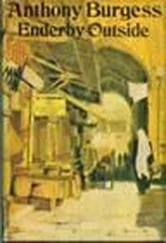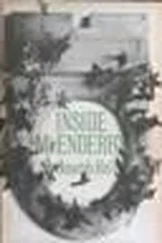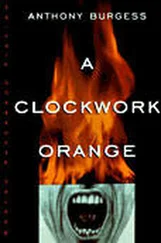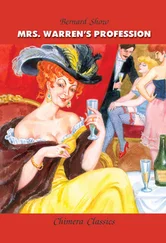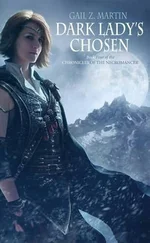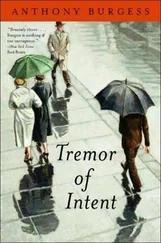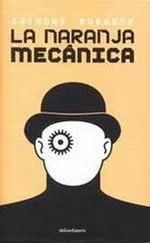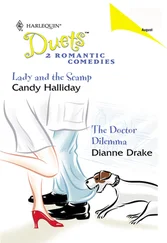Not a mouse stirring as he walked, and there, under rolling cloud all besilvered, he saw it, the Theatre, with something like disappointment. It was mean wood rising above a wooden paling, its roof shaggily thatched. Things were always smaller and more ordinary than one expected. He wondered if it might be possible to enter. There seemed to be no protective night watchman. Before approaching the entrance (a door for an outside privy rather than a gate to the temple of the Muses) he took in the whole moonlit scene, the mean houses, the cobbles, the astonishing and unexpected greenery all about. And then he saw his first living creatures.
Not a mouse stirring, bad he thought? But those creatures with long tails were surely rats, a trio of them nibbling at some dump of rubbish not far from the way into the Theatre. He went warily nearer, and the rats at once scampered off, each filament of whisker clear in the light. They were rats as he knew rats – though he had seen them only in cages in the laboratories of his university – with mean bright eyes and thick meaty tails. But then he saw what they had been eating.
Dragged out from the mound of trash was a human forearm. In some ways Paley was not unprepared for this. He had soaked in images of traitor heads stuck up on Temple Bar, bodies washed by three tides and left to rot on Thames shore, limbs hacked off at Tyburn and carelessly left for the scavenging. Kites, of course, kites. But now the kites would all be roosting. Clinically, his stomach calm from its medicine, he examined the raw gnawed thing. There was not much flesh off it yet: the feast had been interrupted at its very beginning. On the wrist, though, was a torn and pulpy patch which made Paley frown – something anatomically familiar but, surely, not referrable to a normal human arm. It occurred to him for just a second that this was rather like an eye-socket, the eye wrenched out but the soft bed left, still not completely ravaged. And then he smiled that away, though it was difficult to smile.
He turned his back on the poor human remnant and made straight for the entrance door. To his surprise it was not locked. It creaked as he opened it, a son of harsh voice of welcome to this world of 1595 and its strange familiarity. There it was – tamped earth for the groundlings to tamp down yet further; the side boxes; the jutting apron; the study uncurtained; the tarrass; the tower with its flagstaff. He breathed deeply, reverently. This was the Theatre. And then -
"Arrr, catched y'at it!" Paley's heart seemed about to leap from his mouth like a badly fitting denture. He turned to meet his first Elizabethan. Thank God, he looked normal enough, though filthy. He was in clumsy boots, gooseturd-coloured hose, and a rancid jerkin. He tottered somewhat as though drunk, and, as he came closer to peer into Paley's face, Paley caught a frightful blast of ale breath. The man's eyes were glazed and he sniffed deeply and long at Paley as though trying to place him by scent. Intoxicated, unfocused, thought Paley with contempt, and as for having the nerve to sniff… Paley spoke up, watching his words with care:
"I am a gentleman from Norwich, but newly arrived. Stand some way off, fellow. Know you not your betters when you see them?"
"I know not thee, nor why tha should be here at dead night." But he stood away. Paley glowed with small triumph, the triumph of one who has, say, spoken home-learnt Russian for the first time in Moscow and has found himself perfectly understood. He said:
"Thee? Thee? I will not be thee-and-thou'd so, fellow. I would speak with Master Burbage, though mayhap I am somewhat early for't."
"The young un or th'old?"
"Either. I have writ plays and fain would show them about."
The watchman sniffed at Paley again. "Genlmn you may be, but you smell not like a Christian. Nor do you keep Christian hours."
"As I say, I am but newly arrived."
"I see not your horse. Nor your traveller's cloak."
"They are – I ha' left 'em at mine inn."
The watchman muttered. "And yet he saith he is but newly arrived. Go to." Then he chuckled and, at the same time, delicately advanced his right hand towards Paley as though about to bless-him. "I know what 'tis," he said, chuckling. " 'Tis some naughtiness, th' hast trysted ringading with some wench, nay, some wife rather, nor has she belled out the morn." Paley could make little of this. "Come," the man said, "chill make for 'ee an th' hast the needful." Paley looked blank. "An tha wants beddn," the man said more loudly. Paley caught that, he caught also the meaning of the open palm and wiggling fingers. Gold. He felt in his scrip and produced an angel. The man's jaw dropped as he took it. "Sir," he said, hat-touching.
"Truth to tell," Paley said, "I am shut out of mine inn, late returning from a visit and not able to make mine host hear with e'en the loudest knocking."
"Arrr," and the watchman put his finger by his nose, then scratched his cheek with the angel, finally, before stowing it in a little purse at his girdle, passing it a few times in front of his chest. "With me, sir, come."
He waddled speedily out, Paley following him with pulse fast abeat. "Where go we then?" he asked. He received no answer. The moon was almost down and there were the first intimations of early summer dawn. Paley shivered in the wind; he wished he had brought a cloak with him instead of the mere intention of buying one here. If it was really a bed he was to be taken to, he was glad. An hour or so's sleep in the warmth of blankets and never mind whether or not there would be fleas. On the streets nobody was astir, though Paley thought he heard a distant cats' concert – a painful courtship, just as on true Earth. Paley followed the watchman down a narrow lane off Bishopsgate, dark and stinking. The effects of the medicine had worn off; he felt his gorge rise as before. But the stink, his nose noticed, was subtly different from what it had been: it was, he thought in a kind of small madness, somehow swirling, redistributing its elements as though capable of autonomous action. He did not like this. Looking up at the paling stars he felt sure they too had done a sly job of refiguration, forming fresh patterns like a sand tray on top of a thumped piano.
"Here 'tis," the watchman said, arriving at a door and knocking without further ado. "Croshabels," he winked. But the eyelid winked on nothing but glazed emptiness. He knocked again, and Paley said:
" 'Tis no matter. It is late, or early, to drag folk from their beds." A young cock crowed near, brokenly, a prentice cock.
"Never one nor t'other. Tis in the way of a body's trade, aye." Before he could knock again, the door opened. A cross and sleepy-looking woman appeared. She wore a filthy nightgown and, from its bosom, what seemed like an arum lily peered out. She thrust it back in irritably. She was an old Elizabethan woman, greyhaired, about thirty. She cried:
"Ah?"
"One for one. A genlman, he saith." He took his angel from its nest and held it up. She raised a candle the better to see. The arum lily peeped out again. All smiles now, she curtseyed Paley in. Paley said:
" 'Tis but a matter of a bed, madam." The other two laughed at that "madam". "A long and wearisome journey from Norwich," he added. She gave a deeper curtsey, more mocking than before, and said, in a sort of croak:
"A bed it shall be and no pallet nor the floor neither. For the gentleman from Norwich where the cows eat porridge." The watchman grinned. He was blind, Paley was sure he was blind. On his right thumb something winked richly. The door closed on him, and Paley and the madam were together in the rancid hallway.
"Follow, follow," she said, and she creaked first up the stairs. The shadows her candle cast were not deep; from the east grey was filling the world. On the wall of the stairwell were framed pictures. One was a crude woodcut showing a martyr hanging from a tree, a fire burning under him. Out of the smiling mouth words ballooned: AND YETTE I SAYE THAT MOGRADON GIUTH LYFE. Another picture showed a king with a crown, orb and sceptre and a third eye set in his forehead. "What king is that?" asked Paley. She turned to look at him in some amazement. "Ye know naught in Norwich," she said. "God rest ye and keep ye all." Paley asked no further questions and kept his wonder to himself at another picture they passed: "Q. Horat. Flaccus" it said, but the portrait was of a turbaned Arab.
Читать дальше

